Re: Nagorno-Karabagh: Military Balance Between Armenia & Azerbaijan
“Cease Fire” Defined Up Close: A personal journey to grandma and reality
Photolure
By GOHAR ABRAHAMYAN
ArmeniaNow reporter
E-mail to friend | (0) Comments | Print |
READERS' COMMENTS
Would you like to post a comment ? Be the first to share your thoughts.
Post a comment
Comments are welcomed and encouraged. However, comments not pertaining to the topic or containing slander or offensive language will be deleted. You have to be registered to be able leave your comment. Sign in or Register now for free.
Peace ends where the Armenian-Azeri border starts …
This is not a theoretical assumption, but a reality I experienced myself.
Finding myself amidst Azeri gun fire in Aygepar village, Tavush province, last week, I realized once more with all disturbing clarity that the war continues despite the ceasefire regime which, I now know for sure, exists on paper only.
Enlarge Photo
Enlarge Photo
The once industrial lively settlement Aygepar today reminds of a military ground with an army unit in the village and frontline border positions where the village ends.
The Aygepar road stretches only 300 meters from the border and the not-so friendly neighbor country sends an accompaniment of shots and bullets to passing vehicles, drivers of which try to speed away without stopping.
In such a vicinity to the Armenian-Azeri border thoughts get tangled within a mixture of sentiments on what’s life or death, motherland and enemy, neighbor and friend.
Carried away by such thoughts for a moment I mentally went back to a day a few months ago when during a presentation by one peacemaker organization we were lectured on the importance of friendly attitudes to neighbor countries. Back to reality I asked the driver to stop on the border road between the two countries for the sake of understanding how tolerant our “neighbors” are.
Along the border, abandoned pastures stretch that for two decades now have been minefields, thus a forbidden danger zone. Mighty mountains of my fatherland – so loyal, so reliable - were guarding my back, Azeri Alibeily village (Tovuz region) opened to my view in all its splendor of abundant greenery, tall and slim poplars, and neat rows of two-storey houses.
It was an ordinary early-spring rural evening in Alibeily; empty streets, chimney smoke. Standing in the no-man’s land between the two villages I was trying to absorb the serenity typical of only villages. I was enjoying the silence, the peace… Two villages, residents of which only two decades ago knew each other by name, paying visits to one another’s place, helping each other, sharing food at the same table… They could hardly have imagined a day when they’d raise guns against each other.
Did I say peace? Yes, my mind was still drifting in peace lulled by clean air and tranquility of the scenery…a gunshot broke the almost tangible silence and peace was violated. After the second shot one of the Armenian frontier guards there started running towards me shouting to quickly hide in a tank trench.
“What was that?” I asked in shock.
“What was it? It was your enemy,” was the reply. “Wait until it’s dark, then we’ll move, it’s too dangerous now,” the border guard told me.
The enemy seemed so far away when I was in Yerevan. The same enemy whose bullets had killed my uncles, still very young, whose shells had razed to ground my grandfather’s house, the enemy because of whom tears never stop blurring my grandmother’s eyes.
We waited for the cover of night. The moon was hiding behind the mountains as if trying to give us a safe road in the darkness that had turned into a natural shield protecting us; the car had turned off its lights and was navigating its way to Nerkin Karmiraghbyur (“inner red spring”) village.
The tension of that trip brought new thoughts, this time more mature, more clearly shaped: what used to be a neighbor country turned into an odious enemy. And as I kept thinking I felt anger overwhelmed me when recalling how they say the same thing is happening on the other side of the border as well…
In Nerkin Karmiraghbyur, border village in Tavush province, 250 km from Yerevan, for a decade now my eighty-year old grandma (my mother’s mother) has been living in a house ruined by the war. I visit her on every holiday when there are a few days off.
Many treat my frequent visits to this dangerous zone as insanity; to me it’s a call of patriotism, because it is here, right in front of the enemy, trapped between life and death is where true Armenia begins.
My last visit was for the March 8 Women’s Day.
Time seems to have stopped in this border village somewhere around late last century. Walls of houses and factories burned and ruined from non-ceasing gunfire, bullet traces, roads lined with trenches, the sounds of shots in the air, are a proof of the war of not so distant past and the disturbed border of the present.
Politics is silent here, except for campaign seasons. So are international peacekeeping organizations, because people to whom life under gunfire has become a routine are having a hard time preaching peace, tolerance and brotherly love for neighbor countries.
Nerkin Karmiraghbyur was dormant that day, so tranquil, so serene, and so harmonious to the spring holiday… Villagers sick and tired of gunshots had turned off lights in their houses not to become an easy target because of them.
Survivor of two wars, my grandma was sitting by the window, her head bent, her restless fingers plaiting her long hair, white as snow, moving quickly as if competing with each other, in accord to the prayer her bluish lips kept repeating as restlessly: “Dear God, please, let them not shoot again, let there not be a war, not again, please, God…”
“Cease Fire” Defined Up Close: A personal journey to grandma and reality
Photolure
By GOHAR ABRAHAMYAN
ArmeniaNow reporter
E-mail to friend | (0) Comments | Print |
READERS' COMMENTS
Would you like to post a comment ? Be the first to share your thoughts.
Post a comment
Comments are welcomed and encouraged. However, comments not pertaining to the topic or containing slander or offensive language will be deleted. You have to be registered to be able leave your comment. Sign in or Register now for free.
Peace ends where the Armenian-Azeri border starts …
This is not a theoretical assumption, but a reality I experienced myself.
Finding myself amidst Azeri gun fire in Aygepar village, Tavush province, last week, I realized once more with all disturbing clarity that the war continues despite the ceasefire regime which, I now know for sure, exists on paper only.
Enlarge Photo
Enlarge Photo
The once industrial lively settlement Aygepar today reminds of a military ground with an army unit in the village and frontline border positions where the village ends.
The Aygepar road stretches only 300 meters from the border and the not-so friendly neighbor country sends an accompaniment of shots and bullets to passing vehicles, drivers of which try to speed away without stopping.
In such a vicinity to the Armenian-Azeri border thoughts get tangled within a mixture of sentiments on what’s life or death, motherland and enemy, neighbor and friend.
Carried away by such thoughts for a moment I mentally went back to a day a few months ago when during a presentation by one peacemaker organization we were lectured on the importance of friendly attitudes to neighbor countries. Back to reality I asked the driver to stop on the border road between the two countries for the sake of understanding how tolerant our “neighbors” are.
Along the border, abandoned pastures stretch that for two decades now have been minefields, thus a forbidden danger zone. Mighty mountains of my fatherland – so loyal, so reliable - were guarding my back, Azeri Alibeily village (Tovuz region) opened to my view in all its splendor of abundant greenery, tall and slim poplars, and neat rows of two-storey houses.
It was an ordinary early-spring rural evening in Alibeily; empty streets, chimney smoke. Standing in the no-man’s land between the two villages I was trying to absorb the serenity typical of only villages. I was enjoying the silence, the peace… Two villages, residents of which only two decades ago knew each other by name, paying visits to one another’s place, helping each other, sharing food at the same table… They could hardly have imagined a day when they’d raise guns against each other.
Did I say peace? Yes, my mind was still drifting in peace lulled by clean air and tranquility of the scenery…a gunshot broke the almost tangible silence and peace was violated. After the second shot one of the Armenian frontier guards there started running towards me shouting to quickly hide in a tank trench.
“What was that?” I asked in shock.
“What was it? It was your enemy,” was the reply. “Wait until it’s dark, then we’ll move, it’s too dangerous now,” the border guard told me.
The enemy seemed so far away when I was in Yerevan. The same enemy whose bullets had killed my uncles, still very young, whose shells had razed to ground my grandfather’s house, the enemy because of whom tears never stop blurring my grandmother’s eyes.
We waited for the cover of night. The moon was hiding behind the mountains as if trying to give us a safe road in the darkness that had turned into a natural shield protecting us; the car had turned off its lights and was navigating its way to Nerkin Karmiraghbyur (“inner red spring”) village.
The tension of that trip brought new thoughts, this time more mature, more clearly shaped: what used to be a neighbor country turned into an odious enemy. And as I kept thinking I felt anger overwhelmed me when recalling how they say the same thing is happening on the other side of the border as well…
In Nerkin Karmiraghbyur, border village in Tavush province, 250 km from Yerevan, for a decade now my eighty-year old grandma (my mother’s mother) has been living in a house ruined by the war. I visit her on every holiday when there are a few days off.
Many treat my frequent visits to this dangerous zone as insanity; to me it’s a call of patriotism, because it is here, right in front of the enemy, trapped between life and death is where true Armenia begins.
My last visit was for the March 8 Women’s Day.
Time seems to have stopped in this border village somewhere around late last century. Walls of houses and factories burned and ruined from non-ceasing gunfire, bullet traces, roads lined with trenches, the sounds of shots in the air, are a proof of the war of not so distant past and the disturbed border of the present.
Politics is silent here, except for campaign seasons. So are international peacekeeping organizations, because people to whom life under gunfire has become a routine are having a hard time preaching peace, tolerance and brotherly love for neighbor countries.
Nerkin Karmiraghbyur was dormant that day, so tranquil, so serene, and so harmonious to the spring holiday… Villagers sick and tired of gunshots had turned off lights in their houses not to become an easy target because of them.
Survivor of two wars, my grandma was sitting by the window, her head bent, her restless fingers plaiting her long hair, white as snow, moving quickly as if competing with each other, in accord to the prayer her bluish lips kept repeating as restlessly: “Dear God, please, let them not shoot again, let there not be a war, not again, please, God…”



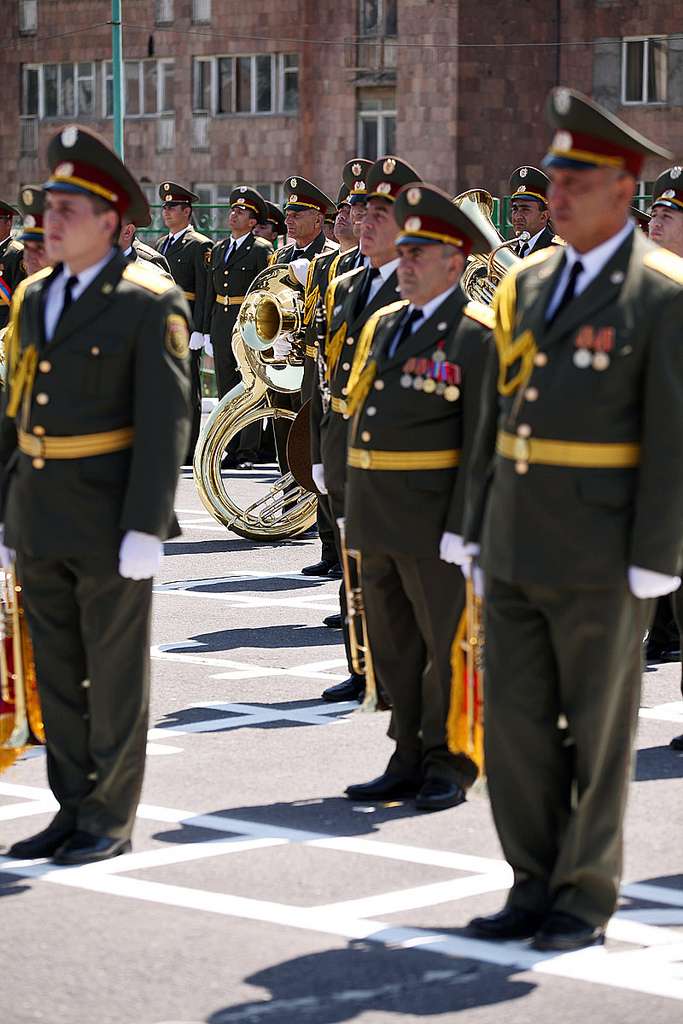
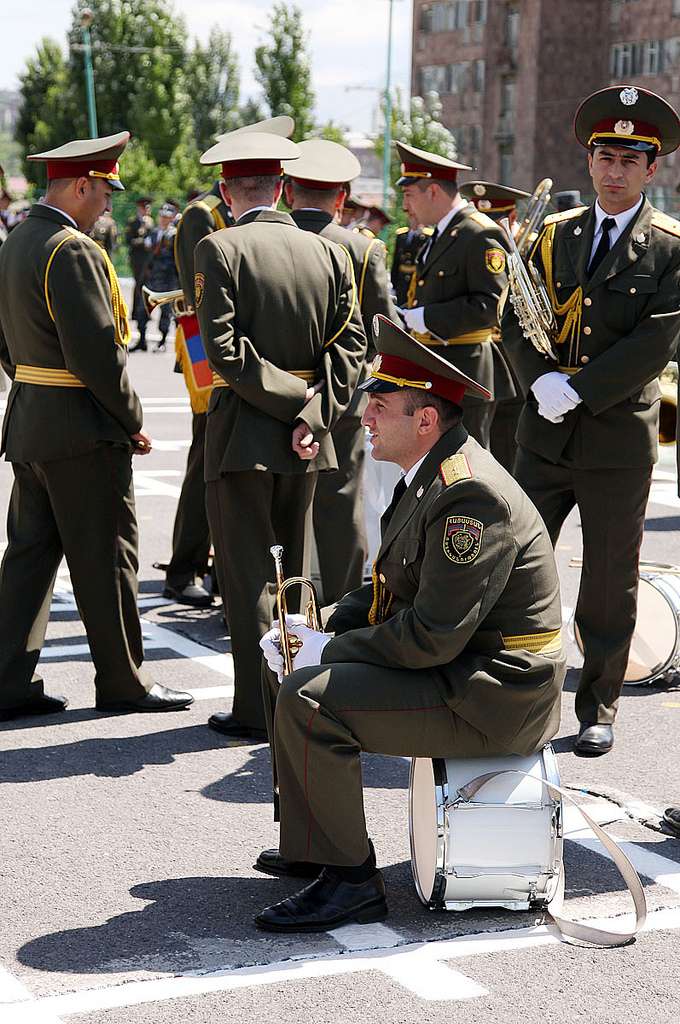
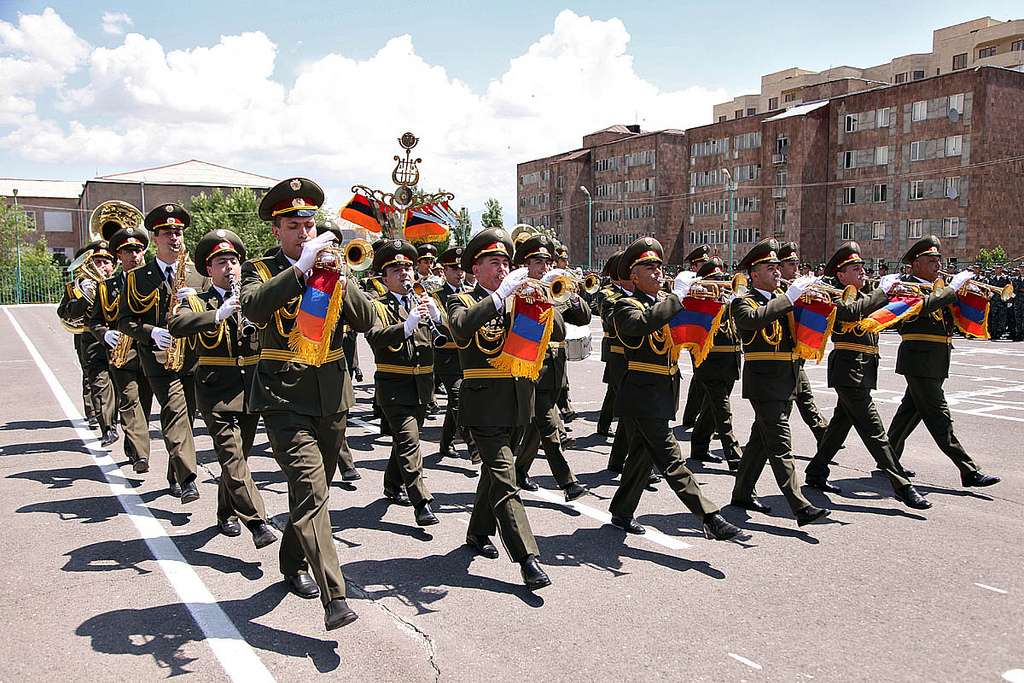
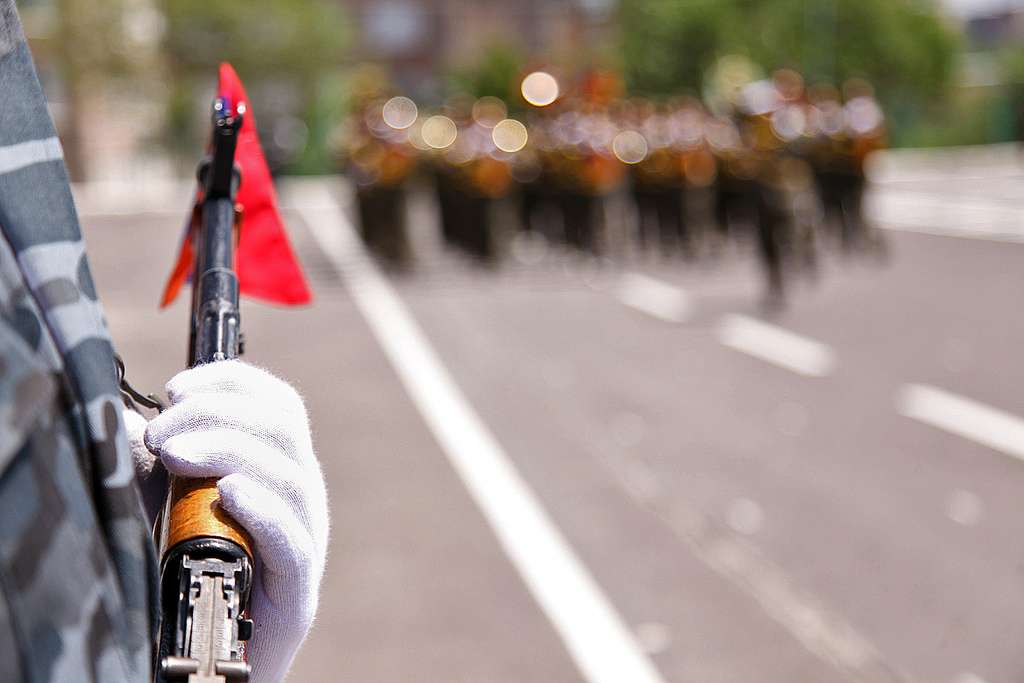

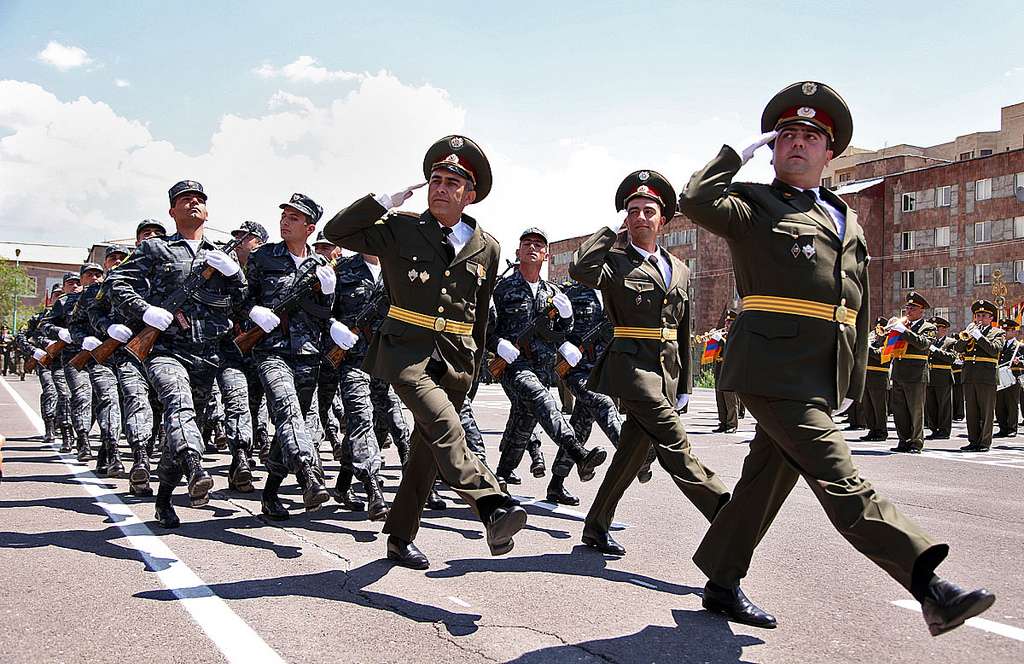
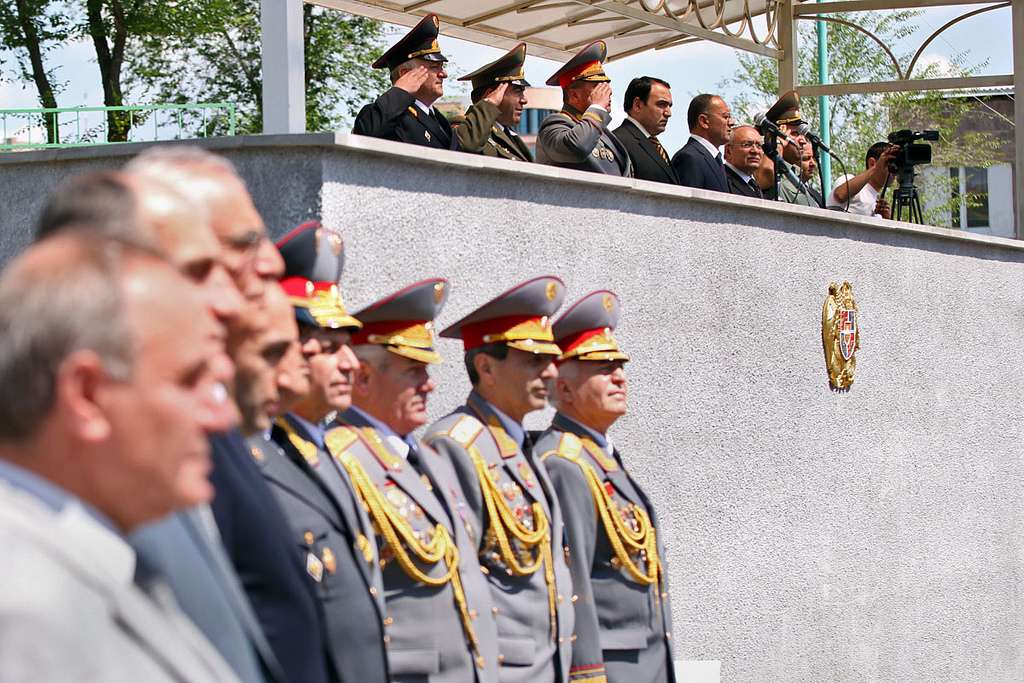
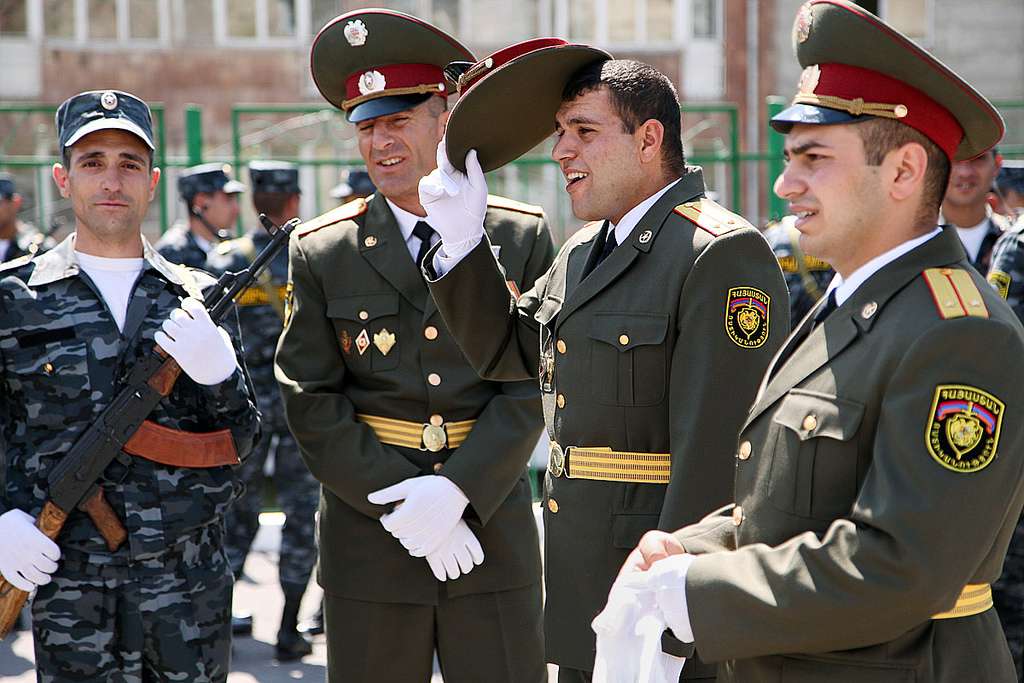
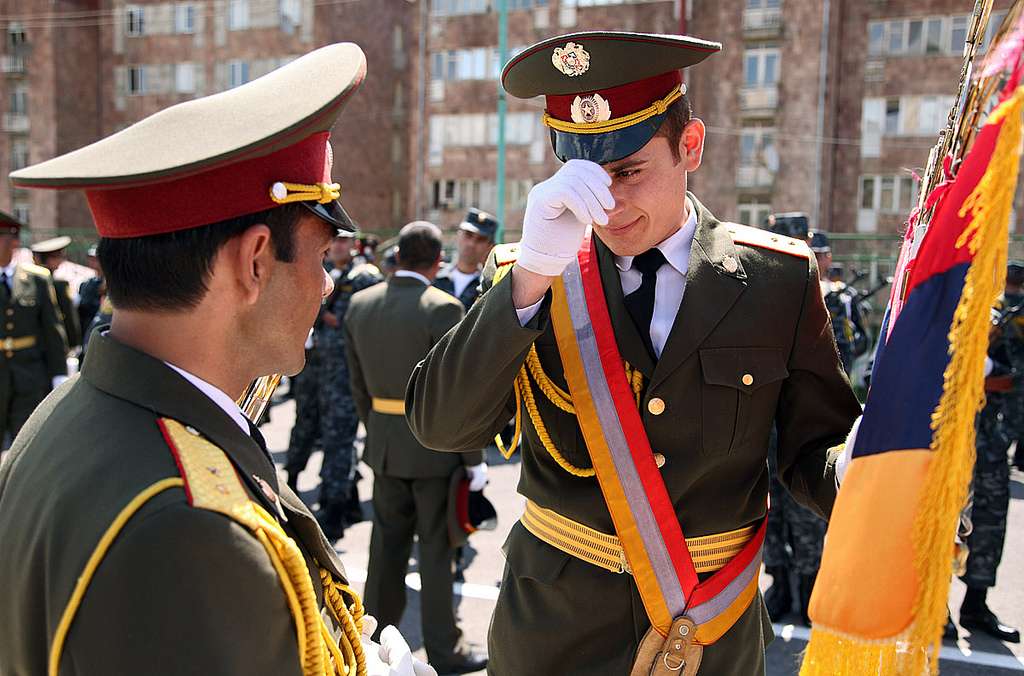



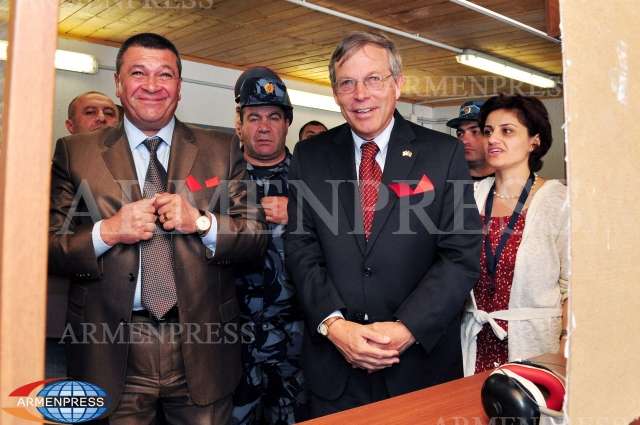

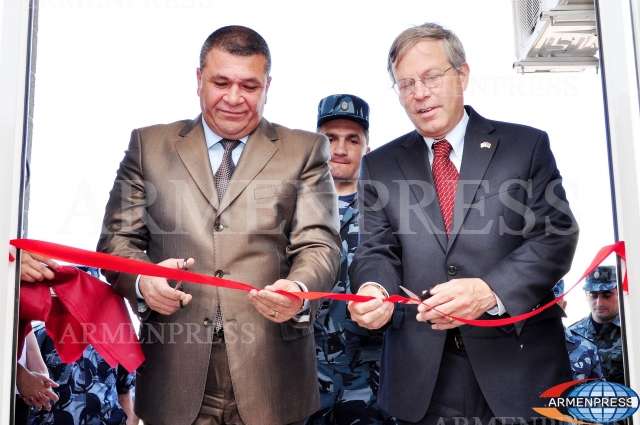
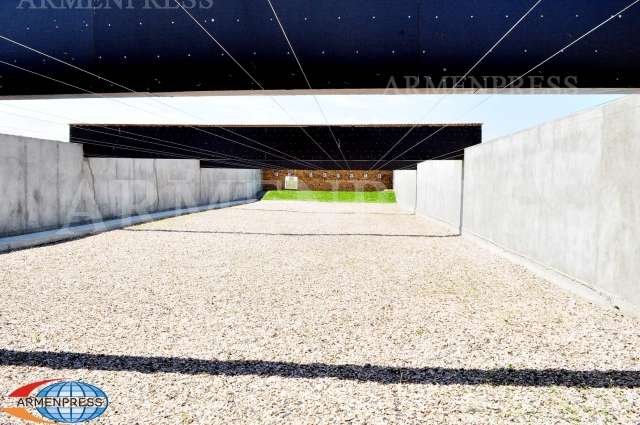
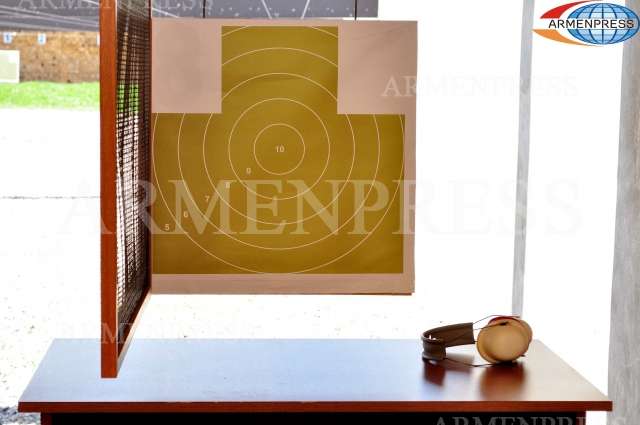




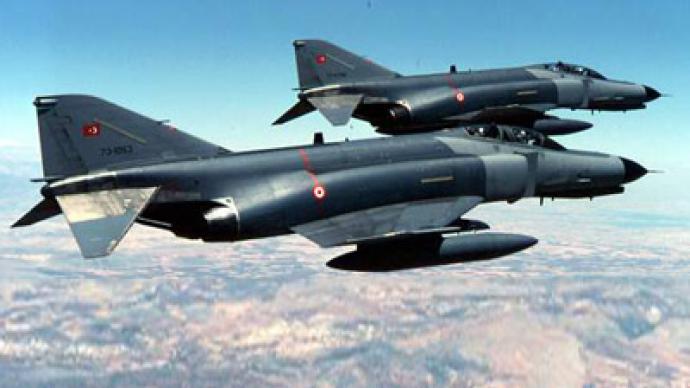





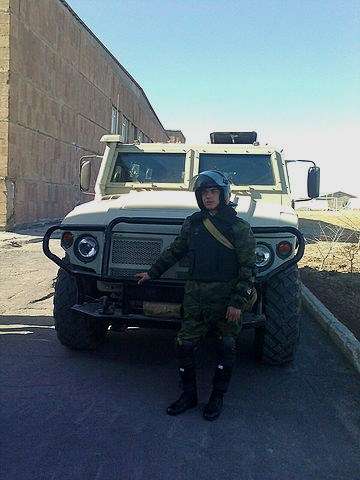
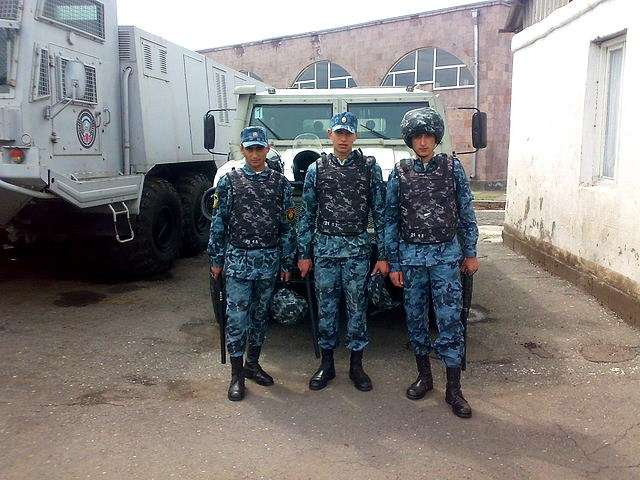
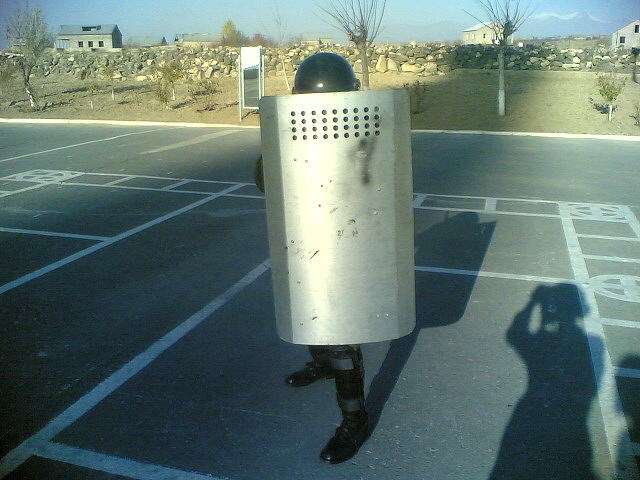
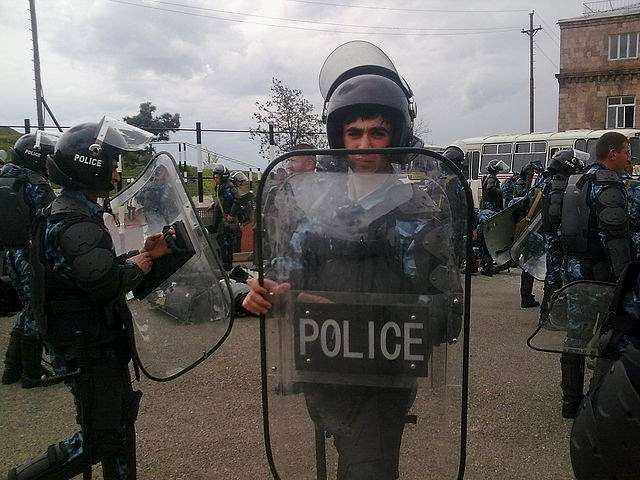
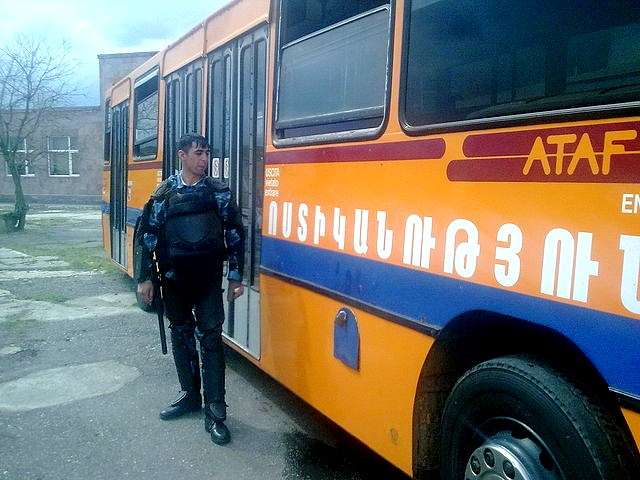
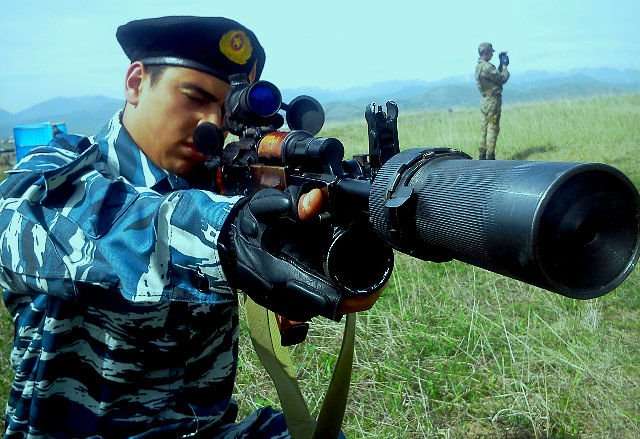
Comment